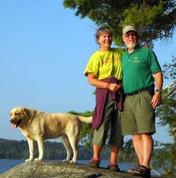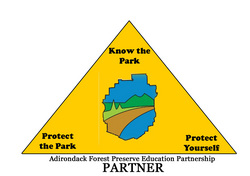I love international travel but I must admit that I have gotten to the point where traveling in an airplane for hours on end and taking close to 24 hours by the time I leave my house in Saranac Lake until I get settled in new lodging in some other part of the world, has lost some of its luster. So I left home once again in trepidation of sitting in crowded airplanes and once again I was rewarded so much more than I could have ever expected. Cyndi and I left from Albany, NY Friday March 20th in the afternoon connecting in Newark where we had a nice dinner in the airport before heading to Paris. We arrived in Paris early in the morning and worked our way through security (again and again) and with a little help from airline officials barely made our flight to Beirut. We arrived in Beirut and got through customs without delay and were met by our IC host Raouf Ghusayni the Director of the Educational Resources Center at International College. We were taken to our apartment where we were had a chance to settle in and take a short rest before we went out to dinner with Raouf and American International Baccalaureate - Primary Years Programme (PYP) consultant Judy Wooster. We had a wonderful meal of lamb, hummus, tabouli and other Lebanese dishes. I also took part in the traditional Lebanese drink of Arak, an anise flavored alcohol.
After a good night’s sleep (pretty good anyway considering the jet lag) we ate breakfast in our apartment (they had stocked it with cereal, juice and milk) and relaxed for the day trying to overcome our jet lag. Beirut is a typical cosmopolitan city with lots of stores, traffic and billboards hawking everything from Panasonic TVs to Accu-View contact lenses. The traffic patterns are different as there is little in the way of traffic control. People honk their horns continuously but in a polite way to let you know they are there. There is a real (and generally very tolerant and polite) give and take at intersections as a result of the lack of traffic control. My take on it was that drivers clearly had to use good judgment as there were few rules… a true experiential education. The highlight of the day was a long walk along the Mediterranean Sea. The walkway was filled with families out for an afternoon stroll.
The link to my photos (assuming I can get the links to work – I’m still working on getting the hang of this Blog) will provide some interesting shots along Bliss St. Good or bad the impact of western icons such as McDonalds, Krispy Kreme, and Pizza Hut can’t be missed.
Click Here for Photos
Monday, Tuesday and part of Wednesday were spent visiting classrooms at Ras Beirut and Ain Aar. It was fascinating to observe classes taught in Arabic, French and English. We observed math, chemistry, social studies, theory of knowledge and of course English classes taught in English. We observed social studies classes taught in Arabic and observed science classes taught in French. It was amazing to observe the ease with which students transferred from one language to another with apparent ease. Although we couldn’t understand the language spoken in many of the classes, observing a student-centered, problem-based, experiential and collaborative (SPEC) classroom is not language dependent. It was easy and fun to see what a “Full-Value Contract” looks like in English, French, and Arabic (Click here for Photo ). Despite language barriers we had no problem identifying activities, tools, and techniques such as a carousel, quality conversation, debriefs, chunking, huddle groups, brainstorming, jig-saws, product-quality checklists, end-of-the-day logs, thumb tool and targeted skills and dispositions. (If you don’t know what these are then you’re a candidate for our training.:-)
Wednesday afternoon provided an opportunity to meet with teachers and administrators who took part in our first training and explore issues important to them. Thursday, Friday, and Saturday were spent in Part B of our six-day training. The highlight of the training was a scenario role play where the teachers play the role of archeologists and made a presentation to a panel of fellow teachers and administrators after investigating the early development of a student-centered, problem-based, experiential, collaborative (SPEC) classroom model. Their task was to gather evidence challenging the traditional notions of education and schooling which held sway in the world during most of the 20th century and address the questions:
- Why did educators of the time think that this educational model might meet the needs of their students more successfully than other approaches?
- What "essential ingredients" seemed to be required for this classroom approach to work?
- How did educators know if their students were producing quality work or developing their skills?
- What happened when this approach worked? What happened when it did not work?
Sunday we got to play tourist and our wonderful colleague Nayla took us up to the Jietta Grotto which is an incredibly large cavern northeast of Beirut. After a tour of the Grotto we had another unbelievable Lebanese meal in downtown Beirut with Nayla and two additional colleagues Ghada and Karam. The friendship and generosity of these people is nothing short of amazing. A walk around the city center wrapped our afternoon. That evening we had dinner at the “Blue Note” (of course specializing in live jazz) with our host Raouf and his lovely wife Nina. The next morning, March 30th, we were up at 1:00 AM and off to the airport for a 4:00 AM flight to Rome and eventually back to Albany.
My second visit to Beirut was another fantastic experience. Wonderful people, great food in a splendid environment makes the work we do extremely rewarding.



 RSS Feed
RSS Feed
